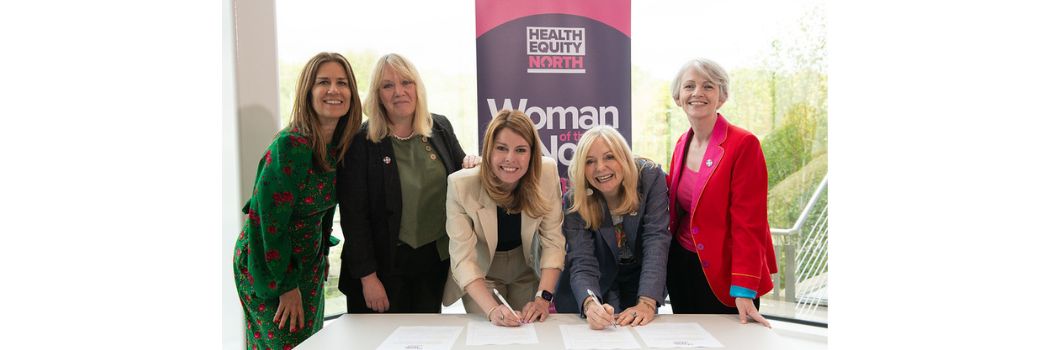
Researchers, policy makers and politicians from across the North of England have gathered at Durham University to discuss worsening health and work inequalities for women in the region.
The Woman of the North Summit
The Woman of the North Summit was held at The Waterside building, part of our Business School, on Wednesday 7 May, and attracted contributors including the elected mayors of North East England and West Yorkshire – Kim McGuinness and Tracy Brabin, respectively.
The conference, organised by the Northern Health Sciences Alliance, was held as new data showed women in the North of England can expect to live fewer years in good health, are more likely to be unable to work due to long-term sickness and disability, and are losing out on £158 million-worth of wages per week compared to other areas of England.
The report came from researchers at Health Equity North, a research institute focused on place-based solutions to public health problems and health inequalities across the North of England. We're a partner in the institute, and Dr Michelle Addison, from our Department of Sociology, is Associate Director in the team.
The Woman of the North report has received a prestigious impact award for creating significant, positive, societal change.
Our part in the Summit
At the Summit, Dr Addison co-facilitated a workshop with Her Circle on representing marginalised women's voices to policymakers. Durham was also represented by Prof Nicole Westmarland, who co-facilitated a workshop on tackling violence against women and girls, and by Prof Charlotte Clarke, who facilitated a workshop on how northern women can age healthier, happier and better. Dr Kate O'Brien also featured as a contributor to the report, discussing impacts of prison on women's health.
Prof Westmarland is from our Department of Sociology and Director of the Centre for Research into Violence and Abuse. Prof Clarke is our Associate Pro-Vice-Chancellor (Health), and Executive Director of the Wolfson Research Institute for Health and Wellbeing. Dr O'Brien is from our Department of Sociology.
The Summit, held in partnership between Health Equity North, the Northern Health Science Alliance and Leigh Day Solicitors, saw the launch of a Woman of the North Charter, through which organisations can commit to raising awareness and mobilising action for women throughout their work.
Regional inequalities revealed
Here are some key findings from the data released:
- Girls born in North East England in 2021-2023 can expect to live around two years fewer than the national average, and three years fewer than girls born in London and South East England.
- Girls born in North East England in 2021-2023 can expect to live in good health six years fewer than the national average, and nine years fewer than girls in London and South East England.
- Nearly ten per cent of women in North East England are economically inactive due to long-term sickness or disability, compared with the national average of 6.2% and just 4.3% in London and South East England.
- Women in the North lose out on £158 million in pay every week (around £8.2 billion a year) compared to the national average.
- There is a dearth of research about how the criminal justice system impacts marginalised women's health in the North.






